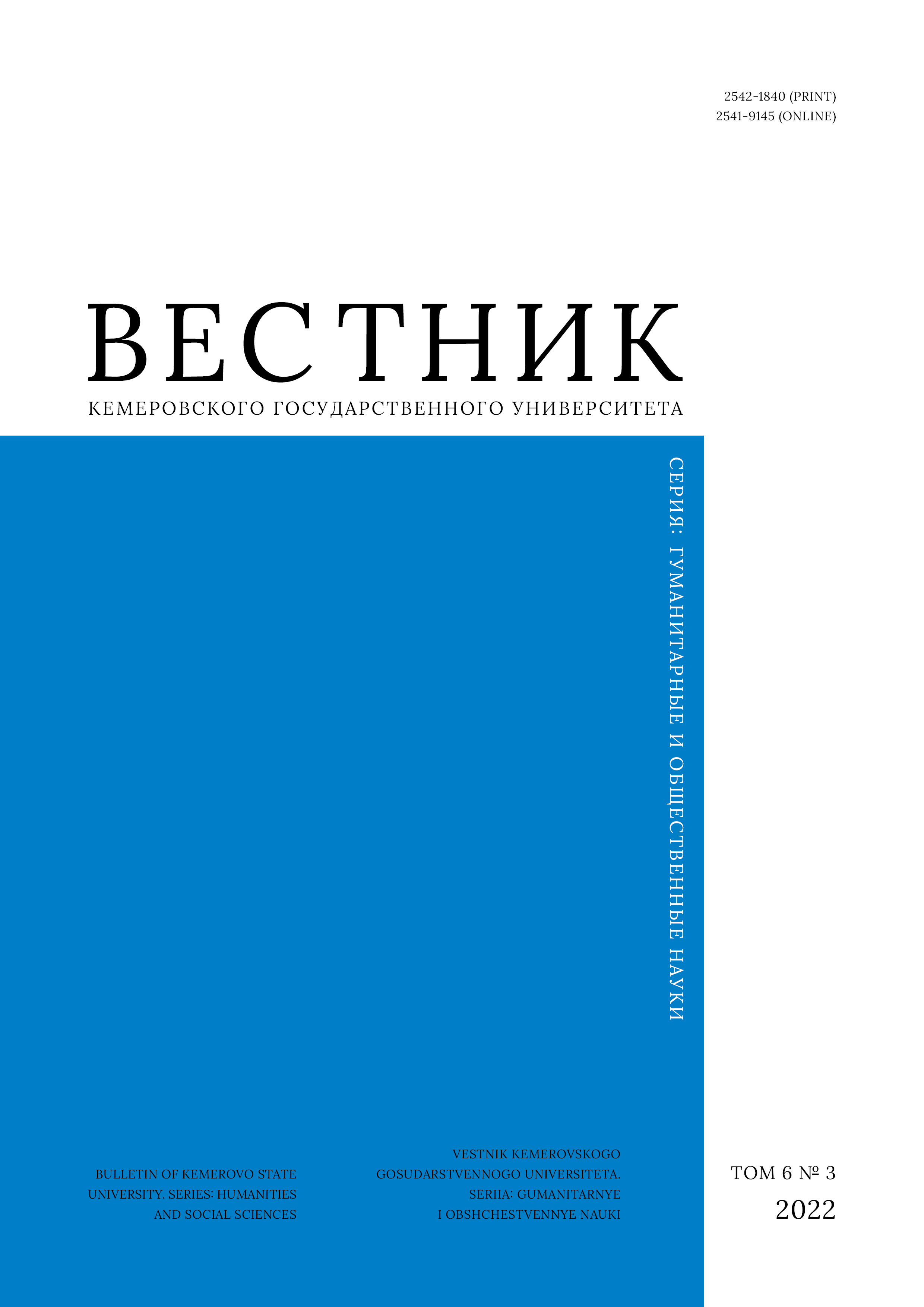St. Petersburg, Russian Federation
The article introduces a two-group classification of scientific publications on the age-related socio-psychological characteristics of people with special needs. The first group features the development conditions, while the second group focuses on the types of socio-psychological characteristics and the social groups they affect. The authors believe that adults with life-long disabilities and those who were registered as disabled at the age of majority have different socio-psychological profiles and socialization issues. An unstructured interview revealed that the socio-psychological characteristics of adults with life-long disabilities depended on the attitude to the disease shaped by their parents. As for people who acquired the status as adults, their attitude depended on the social skills they possessed before. They had a better social adaptability but a more difficult socialization later in life.
socio-psychological characteristics of personality, disability, socio-psychological adaptability, rehabilitation, socialization, social adaptation issues, type of attitude to the disease, labor socialization, parent-child relations
1. Andreeva G. M. Social psychology. Moscow: Aspekt Press, 2001, 290. (In Russ.)
2. Senina A. V. Socialization of persons with disabilities of working age at the Center for Social rehabilitation of the Disabled and disabled children. Social service for families and children, eds. Barabokhina V. A., Bondarenko T. V., Bubnova M. M., Kazakova R. G., Privalova M. L., Sergeeva N. I. St. Petersburg: StPSBE City Information Metodical Center Family, 2019, iss. 17: Social service for senior citizens and disabled people of working age, 120-133. (In Russ.)
3. Detochenko L. S. Problem aspects of socialization of persons with disabilities in Russia. Medicine. Sociology. Philosophy. Applied research, 2022, (4): 68-72. (In Russ.)
4. Dargan A. A. Sociological interpretation of social subjectness of disabled people. Znanie. Ponimanie. Umenie, 2020, (2): 84-96. (In Russ.) http://dx.doi.org/10.17805/zpu.2020.2.7
5. Krasutskaia O. V. Social rehabilitation in the context of the disabled life trajectories. Izvestiya of Saratov University. Sociology. Politology, 2018, 18(3): 300-305. (In Russ.) http://dx.doi.org/10.18500/1818-9601-2018-18-3-300-305
6. Nosenko-Stein E. E. Experiencing other lives: self-representation of disabled people in their autobiographies. The other side of the moon, or what we don't know about disability: theory, representations, practices, eds. Kurlenkova A. S., Nosenko-Stein E. E. Moscow: MBA Publishers, 2018, 95-126. (In Russ.)
7. Adeeva T. N. Peculiarities of disability experience as a crisis state accepted by personality. Vestnik of Kostroma State University. Series: Pedagogy. Psychology. Sociokinetics, 2008, 14(6): 202-208. (In Russ.)
8. Iarskaia-Smirnova E. R. The sociocultural analysis of otherness. Saratov: SSTU, 1997, 272. (In Russ.)
9. Chernichkina V. A. Socio-psychological problems of the disabled and the main strategies for their resolution. Cand. Psykhol. Sci. Diss. Abstr. Yaroslavl, 2003, 27. (In Russ.)
10. Kandaurova T. I. Social status and adaptation of a person with disabilities: gender aspect. Cand. Sociol. Sci. Diss. Moscow, 2004, 240. (In Russ.)
11. Reut M. N. Socialization of young people with hearing issues. Cand. Sociol. Sci. Diss. Moscow, 2000, 154. (In Russ.)
12. Karayani Yu. M. Socially-psychological model of rehabilitation of invalids of operations. Moscow: Military University, 2015, 132. (In Russ.)
13. Rytov A. G. Strategies for social adaptation to disability in labor age. Cand. Sociol. Sci. Diss. Abstr. Nizhny Novgorod, 2009, 22. (In Russ.)
14. Telminova K. V. The differences in socialisation of adults with inborn and acquired disabilities. Izvestiya Rossijskogo gosudarstvennogo pedagogicheskogo universiteta im. A. I. Gertsena, 2021, (200): 174-189. (In Russ.) https://doi.org/10.33910/1992-6464-2021-200-174-189
15. Aismontas B. B., Odintsova M. A. Social psychological support of students with disabilities. Psikhologicheskaya nauka i obrazovanie, 2017, 22(1): 71-80. (In Russ.) https://doi.org/10.17759/pse.2017220109
16. Belonogova E. V. Parental expectations in relation to adolescents with cerebral palsy. Inclusive education: methodology, practice, and technology: Proc. Intern. Sci.-Prac. Conf., Moscow, 20-22 Jun 2011. Moscow: MSUPE, 2011, 95-97. (In Russ.)
17. Voronkov K. I. Resocialization of citizens in the context of social policy of modern France and Germany. Vestnik of Lobachevsky State University of Nizhny Novgorod, 2020, (5): 101-105. (In Russ.)
18. Kislitsa G. K. Peculiarities of psychological space in people with musculoskeletal system disorders. Psikhologicheskaya nauka i obrazovanie psyedu.ru, 2012, 4(4). (In Russ.) URL: https://psyjournals.ru/psyedu_ru/2012/n4/57398.shtml (accessed 3 Apr 2022).


















